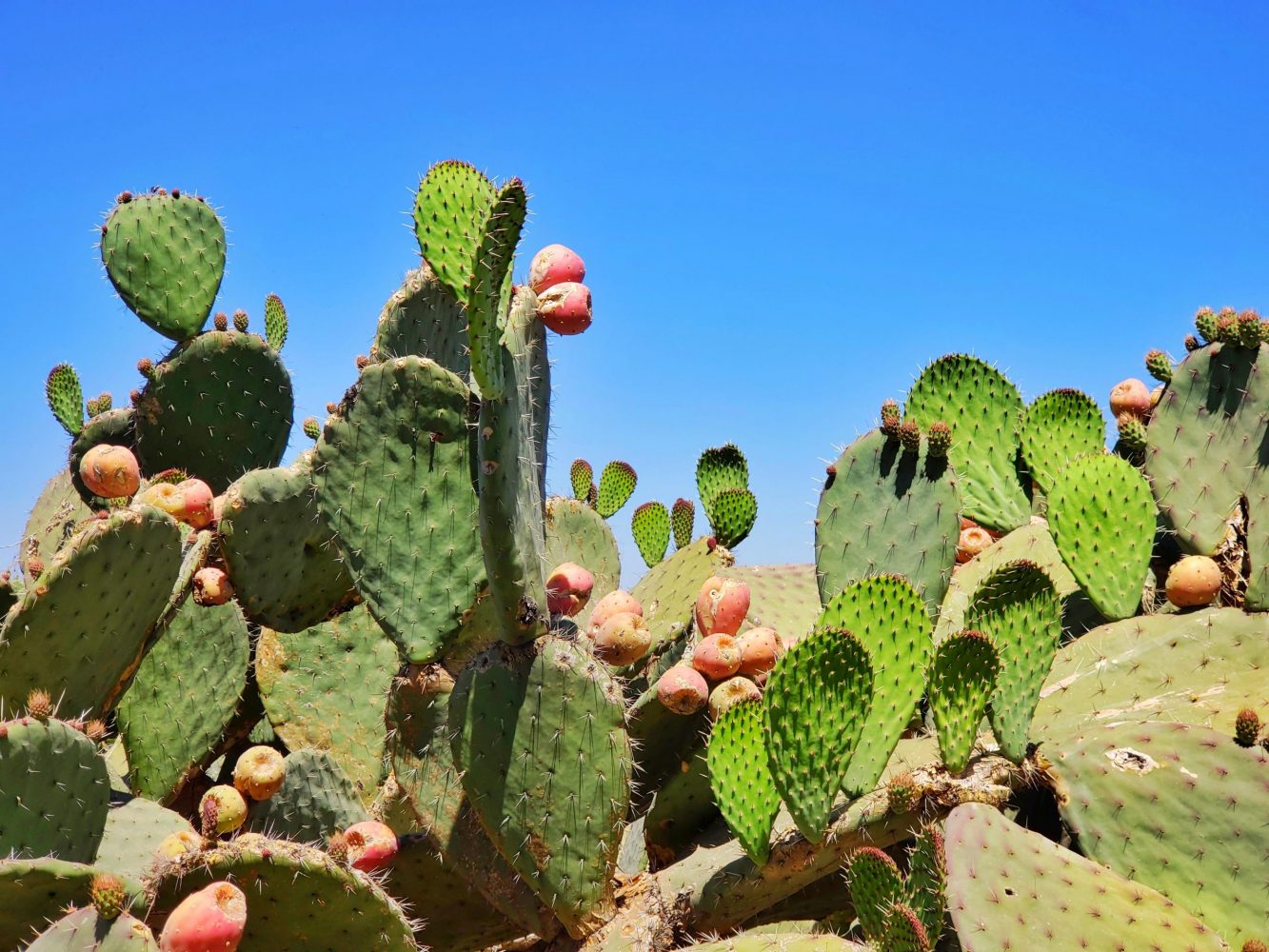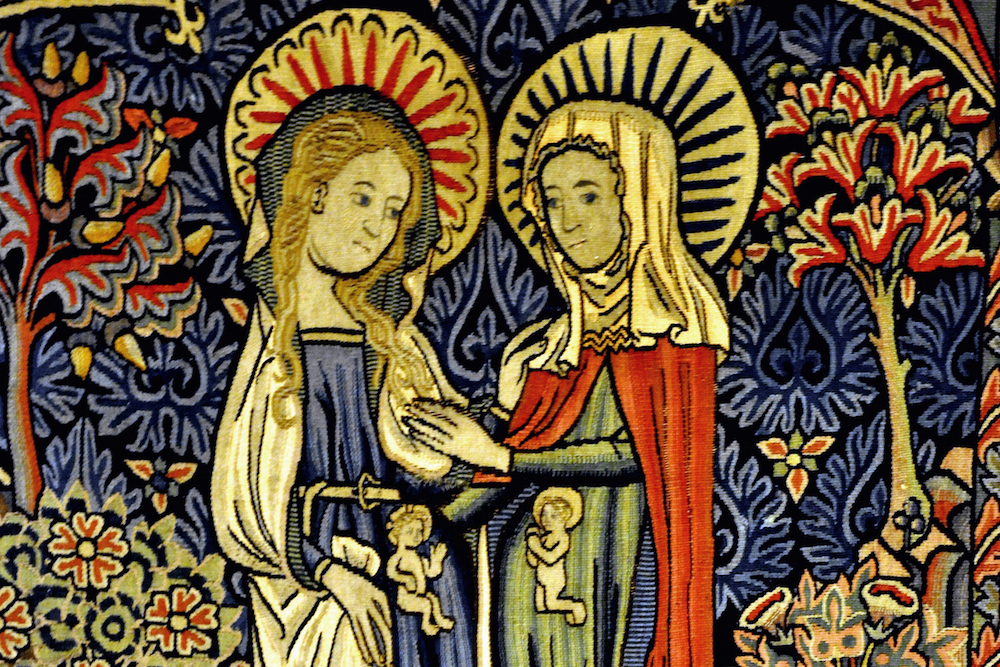interviews
Natalie Diaz Unravels What It Means to Be American and Native
The author of "Postcolonial Love Poem" on the pain America has inflicted on indigenous people

Natalie Diaz’s second poetry collection, Postcolonial Love Poem, explores the pain America has inflicted on indigenous people—and how desire and love are created or found despite that trauma. Postcolonial Love Poem also celebrates being Native American, while exploring—through desire or lackthereof—what the American part means.
Diaz is the author of When My Brother Was an Aztec, winner of an American Book Award. She has received many fellowships, including a MacArthur Fellowship and a Native Arts and Cultures Foundation Artist Fellowship. She is Mojave and an enrolled member of the Gila River Indian Tribe.
I chatted with Natalie Diaz about devouring loss, the American Dream, and unraveling what it means to be American and Native.
Arriel Vinson: The epigraph, by Joy Harjo, that begins the collection is about losing a country. This sets us up for a lot of loss in relation to indigenous people. Loss of land, of tradition, of love. How does loss/things being taken away go hand in hand with love?
Natalie Diaz: There is no such thing as nothing. (I don’t know how that is explained scientifically.) There is always something there to devour the loss. There is always something there to become the loss so the loss becomes something else. Or something more—it is still loss, maybe, but possibly something else—some energy, some memory, some possibility, some touching, some ions or atoms trying to make it across to one another and become a newness.
While there is loss, my ancestors filled it for me with a thousand ways of love, with power, with dreams, with caretaking one another and this earth, with anger, with rage, with story. Our loss can’t exist—because it is so great it would kill us—if my ancestors and my community and family had not filled that loss with enough things to hold it, to handle it (though not always to handle it “well”), to exist within it or next to it. I can be the wound, or I can be what happens to the wound as it becomes something different, maybe not always something less painful, but something also new. The blood, the cicatrix, the scab, the scar, the thing after the wound. If you take the tuna or fruit from a prickly pear, or even taken its nopal, it will continue to grow more nopals. It will continue to fruit again.
AV: You often write about your brothers. But in Postcolonial Love Poem, they are both weapon and wound. There are poems about them discovering an ark, poems about them being bullet, etc. How does duality affect the relationship your poems have with your brothers? Does it allow you to see them more clearly off of the page?
This is the nature of my country. That it hurts you so much you begin to hurt yourself.
ND: My brothers never make it to the page, but a story of my experience of them does arrive. My love for them. My worry for them. My inability to save them from a world that wants to break them. In this book, I was questioning not my brothers but this country who has held my brothers so roughly that they fought and continue to fight back in ways that harm them more. This is the nature of my country. That it hurts you so much you begin to hurt yourself.
AV: Desire plays many different roles in Postcolonial Love Poem. There’s anxiety as desire, plenty of mention of love-making and/or having a lover, walking toward love despite dealing with grief. Tell me more about your different definitions of love, and how those function throughout the collection.
ND: I know that what I was taught about love, the way it was given to me in English and in citizenship, is not what I have come to know and experience as love. In order for me to be possible, I have to create conditions in which love is always possible. I don’t believe that will happen through the state, or through my government. I don’t know how it will happen but am trying to find the practices (including the practice of language) that might make it possible. That I can be loved. That I can love. Love is so many things, and all of them are beyond love, or beneath it, or what happens just before or after it.
AV: Mythology is also prevalent in this collection, with the speaker in some of the poems calling out/speaking to various gods or warriors. Why was mythology important in this collection and how did it relate to desire/love for you?
It is hard for me not to become the things I have always been told that I am.
ND: It’s possible any word is a myth. A small myth. A large myth. A word is never what it is, but a desire for the thing to be, either for understanding or for want or for remembering. I grew up with story, stories that are days long to tell, stories that might never be told again, and English often refers to them as myths. So when I find things that people call myth, I’m interested, because I know there is a world there that once existed or might possibly exist again that is different from the world I live in now, which is a hard world.
AV: In “Like Church,” the speaker mentions how indigenous people, but also POC in general, are expected to perform their sadness. Why was this significant to point out, and is that why celebration (playing basketball, attending church) was present throughout Postcolonial Love Poem as well?
ND: English is prophetic. Our Constitution is prophetic. Citizenship is prophetic. It tells us what to do, who we are, how to relate to one another, who is “us” and who is “them.” It is hard for me not to become the things I have always been told that I am. Especially when those words have been threaded into my words, into my language and thinking and touching.
Basketball/sport and church are also ways of control, but like all of these shapes, some of us find our small freedoms in them, or at least get a taste of what it might be like to break these structures open and see what is on the other side of them.
AV: Postcolonial Love Poem interrogates the idea of the American Dream, as most of the poems unravel the notion of what it means to be American. What did it feel like to dismantle this idea?
America never meant for us to dream it.
ND: The American dream has always been in shambles, in pieces for my family, my community, and me. We never dreamed it. America never meant for us to dream it. And Mojave dreams are too strong for what is American. So they don’t match up. I don’t know that I’m unraveling what it means to be American, because I am American and the book explores the conditions in which I live and love, but maybe it unravels what was “meant” to be American. And we lived, so we are disrupting that American intention.
AV: There is a river flowing through the collection and of course, a lot of mention of land or landscape. Why was it important to make setting a theme in this collection?
ND: These are the settings that I am made from—the desert and the river. I’m made from clay. It’s less setting and more a body, a relative, another part of how I know myself. How I know my family. Nyayuu ‘akanaav. One way of interpreting that is: I have something to tell. In this collection, I am very selfishly telling what was in me to tell. These are some of the things that were in me.
AV: What are you working on now?
ND: I am working on being more intentional.









